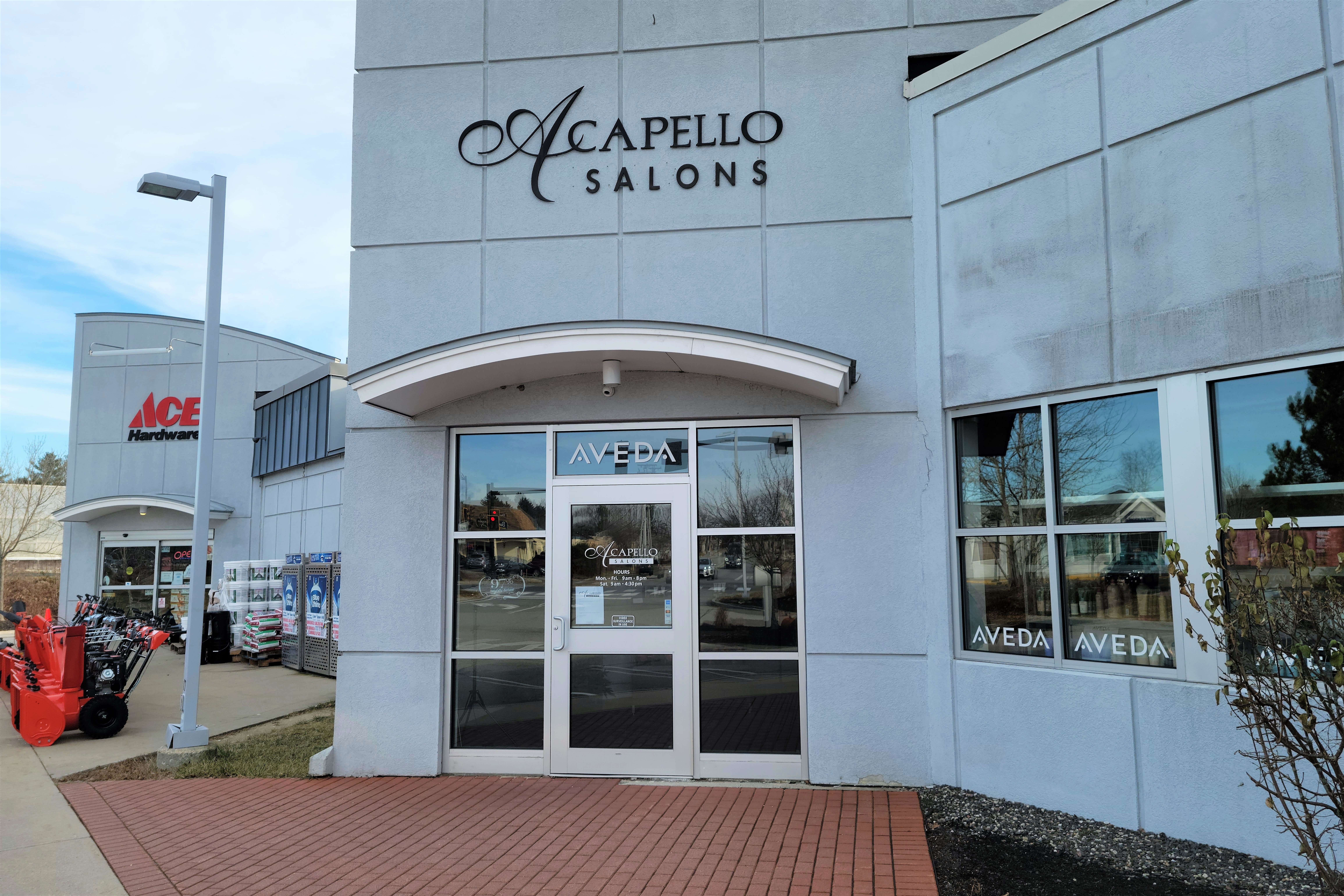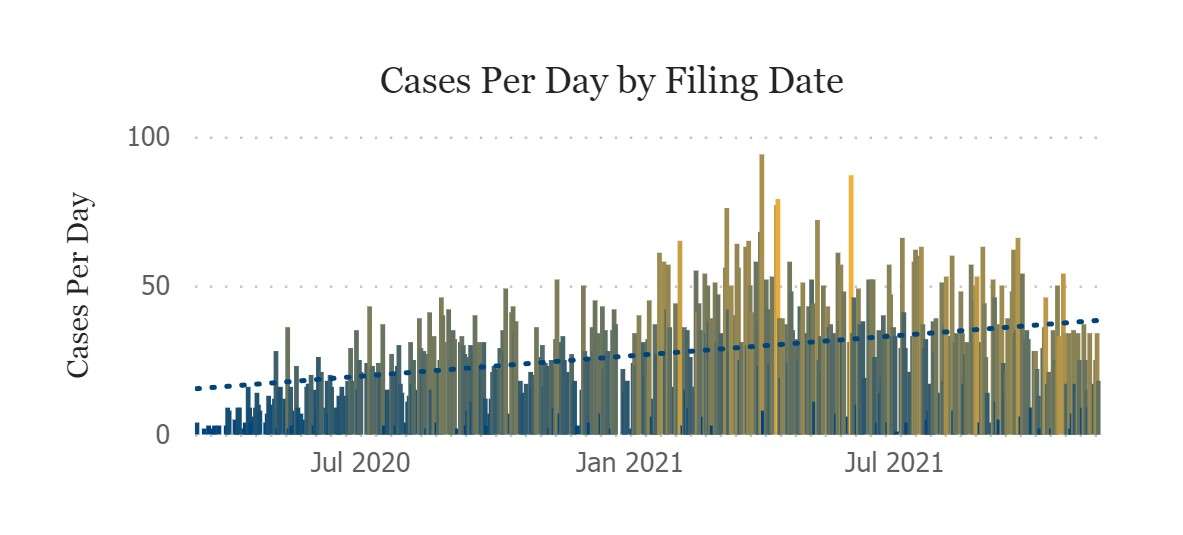
Whistleblower sues Maine salon chain over COVID-19 practices: 'My boss is risking my health'
 Photo / William Hall
Britni Murch worked from 2016-20 as a stylist at Acapello on U.S. Route 1 in Scarborough. She's now suing her former employer, claiming she was illegally forced to quit in retaliation for her criticism of COVID-19 safety practices there.
Photo / William Hall
Britni Murch worked from 2016-20 as a stylist at Acapello on U.S. Route 1 in Scarborough. She's now suing her former employer, claiming she was illegally forced to quit in retaliation for her criticism of COVID-19 safety practices there.
One of Maine’s newest workplace disputes over COVID-19 has nothing to do with much-publicized vaccine requirements.
A Cornish woman has sued her former employer, a chain of five hair salons in southern Maine, claiming the company retaliated against her after she voiced concerns about its COVID precautions.
In a complaint filed Nov. 22 with Portland federal court, Britni Murch accuses Acapello Salons Inc. of wrongfully withholding wages and forcing her to quit work as a stylist at Acapello’s flagship branch in Scarborough. The company acted in response to Murch’s criticism of its “unsafe and illegal practices related to covid protocol,” violating the Maine Whistleblower Protection Act, according to the complaint.
The complaint also claims Murch was entitled to a paid leave from work under the federal Emergency Paid Sick Leave Act, signed into law at the start of the pandemic.
Murch has since found another job but is suing to recover lost pay and benefits, compensation for emotional distress and other damages. In an interview with Mainebiz, her attorney, Danielle Quinlan, wouldn’t speculate on how much the total would be.
Acapello answered the complaint last Thursday in a filing that denies each of Murch’s allegations. Trial may begin next June, according to a schedule released Monday.
And according to legal experts, more such cases are on the way — pitting employers against workers over changing, sometimes bewildering requirements for COVID safety.
Tale of the texts
Acapello allegedly allowed clientele to go without protective face masks last year when public health rules required hair salon customers to use them. Customers were also allowed to wait for appointments inside the Scarborough salon in violation of state regulations, the complaint says.
June Juliano, Acapello’s owner and also a stylist in the Scarborough salon, “does not believe that COVID-19 is real” and “refused to abide by CDC guidelines and refused to abide by regulations that were set in place at the beginning of the pandemic as means to slow the spread of COVID-19.”
In September 2020, Juliano and her husband vacationed in Florida and then returned to Maine early the next month without following the state’s quarantine-or-test requirement then in effect, Murch claims.
Juliano refused to isolate herself for 14 days or to undergo a COVID test as required, according to the complaint. Murch, a new mother who had worked for Acapello since 2016, said she couldn’t risk exposing herself and her family to the disease.
“If [Juliano] is quarantining from the salon tomorrow I would like to come work. If she does not then I guess I feel strongly enough about it that I won’t come in,” Murch texted an Acapello manager. “We are in a pandemic and some of us are trying our best to keep our families safe.”
The manager told Murch she’d have to take off the two weeks as excused personal time, without pay.
Murch texted, “It’s not excused personal time because I didn’t ask for it or want it. It’s because my boss is risking my health.”
Later, she texted Juliano directly: “Something is strongly telling me that you guys can’t take pay away from an employee because the owner doesn’t want to follow pandemic protocol to ensure the safety of those around her.” Juliano responded by texting, “Understood.”
Murch later filed a discrimination complaint with the Maine Human Rights Commission, claiming the actions of her former boss amounted to whistleblower retaliation. In August, the commission gave Murch permission to file her lawsuit.
Patterns of behavior
But Murch’s claims are “not accurate,” according to the attorney representing Acapello.
“People were not walking around without masks. People were not getting any kind of waxing or hand massages,” said Jonathan Brogan in an interview. “My client wanted her business to stay open, not be closed … She was following what the state provided and she did what was required to keep her business open.”
Juliano, who began working as a hairdresser at age 16, founded Acapello in 1995. Today the business operates five locations with a total of 32 styling stations and around 50 employees. Juliano’s husband, David Stanley, also works at Acapello. An affiliated salon, the Men’s Room, has served male customers near Portland’s Monument Square since 2005.
Asked how Juliano views the pandemic, Brogan said, “June has a business … She understood there was a pandemic. She understood there were significant restrictions and she followed them.”

According to Brogan, the communication with Murch followed a different tack.
“Her employer said, ‘Look, we understand, you don’t have to feel unsafe. If you feel unsafe, even though everyone’s wearing a mask, then you don’t have to come to work for two weeks, and then you can come back to your regular job.’ But she wanted to have both two weeks off and get paid for it.”
Quinlan, naturally, disagrees.
Acapello and Juliano engaged in a pattern of “escalating behavior” that endangered employees, she told Mainebiz.
“Then my client learned of the trip and simply asked her to abide by the regulations in place at the time and either get tested or quarantine, and the owner refused to do either. That was the breaking point. And there was no ignoring what was going on after that.”
Juliano, according to Quinlan and her client, “did not want to adjust her routine, did not want to adjust her practices, and just wanted to continue on as normal.”
An understandable reaction? “Of course,” Quinlan said. “But not at the expense of your employees’ safety.”
To support their differing accounts of what happened, both attorneys have lined up testimony from third parties.
The complaint Quinlan filed on behalf of Murch cites another Acapello employee, Kasey Buretta, who also quit because she felt unsafe and described the salon’s alleged violations on social media. They included not scheduling required time for cleaning between customer sessions and serving out-of-state clients without checking their quarantine status.
Brogan, on behalf of Acapello, said he has an affidavit from a “noted physician” who had regularly visited the Scarborough salon and found it “exemplary” in handling COVID safety. “So we have customers who are standing up for us,” Brogan said.
Both attorneys said Juliano and Murch had a generally positive working relationship before the pandemic. Neither attorney would allow Mainebiz to speak directly with their clients.
Blazing a trail
There’s also another area of agreement between the two sides: This case is new territory.
Even in the relatively short span of the pandemic, COVID litigation has focused more on high-profile issues such as personal injury or, most recently, vaccines. Questions about ongoing workplace precautions and emergency sick leave haven’t been as common
“It’s brand new,” said Brogan, who has worked as a trial attorney for over 35 years and chairs the litigation practice at Norman Hanson DeTroy in Portland. “This is the first time I’ve seen that cause of action.”
Quinlan, who began her Kennebunk law practice with partner Laura White just as the pandemic was beginning, said, “COVID has created a huge host of issues for employers and employees alike … But you have a lot of employers and employees who just seem to be winging it.”

The frequency of COVID-related workplace disputes has spiked so much that the federal government and several law practices across the country have been tracking the rise on a daily basis.
A U.S. Department of Labor tally of federal whistleblower complaints related to COVID shows there have been 6,068 since the start of the pandemic, with 1,504 still awaiting investigation, according to data released Monday. The numbers have doubled from the totals a year ago.
Court cases have been increasing too, according to Ogletree Deakins, a South Carolina law firm with a Portland office and one of the largest specialists in employment law. The firm’s interactive tracker of COVID-19 litigation shows a steady rise since March 12, 2020. New cases throughout the U.S. are now frequently hitting about 50 per day.
Data from another large employment law firm, Atlanta-based Fisher Phillips, compared the number of COVID cases from May-December 2020 with those from January-August 2021. Cases across the U.S. rose by a “staggering” 59%, the firm wrote in September.
And the litigation surge isn’t confined to the courtrooms of big cities. Based on the number of new cases per capita, Fisher Phillips identified New Hampshire and Vermont among five “hotspot” states where COVID litigation made them “difficult places for employers to operate.”
Could Maine be next?
“I’m sure there will be more cases here,” said Brogan, although he doesn’t think they’ll amount to a “proliferation.”
“Maine has never been a particularly litigious state. And my experience over the years is that people here look long and hard at claims against other people.”
But Quinlan cautions: “Maine will have more cases like this because of the nature of the employers here. They have fewer resources to find out if they’re doing the right thing. So I do think things will be more difficult until there is more guidance.”










0 Comments